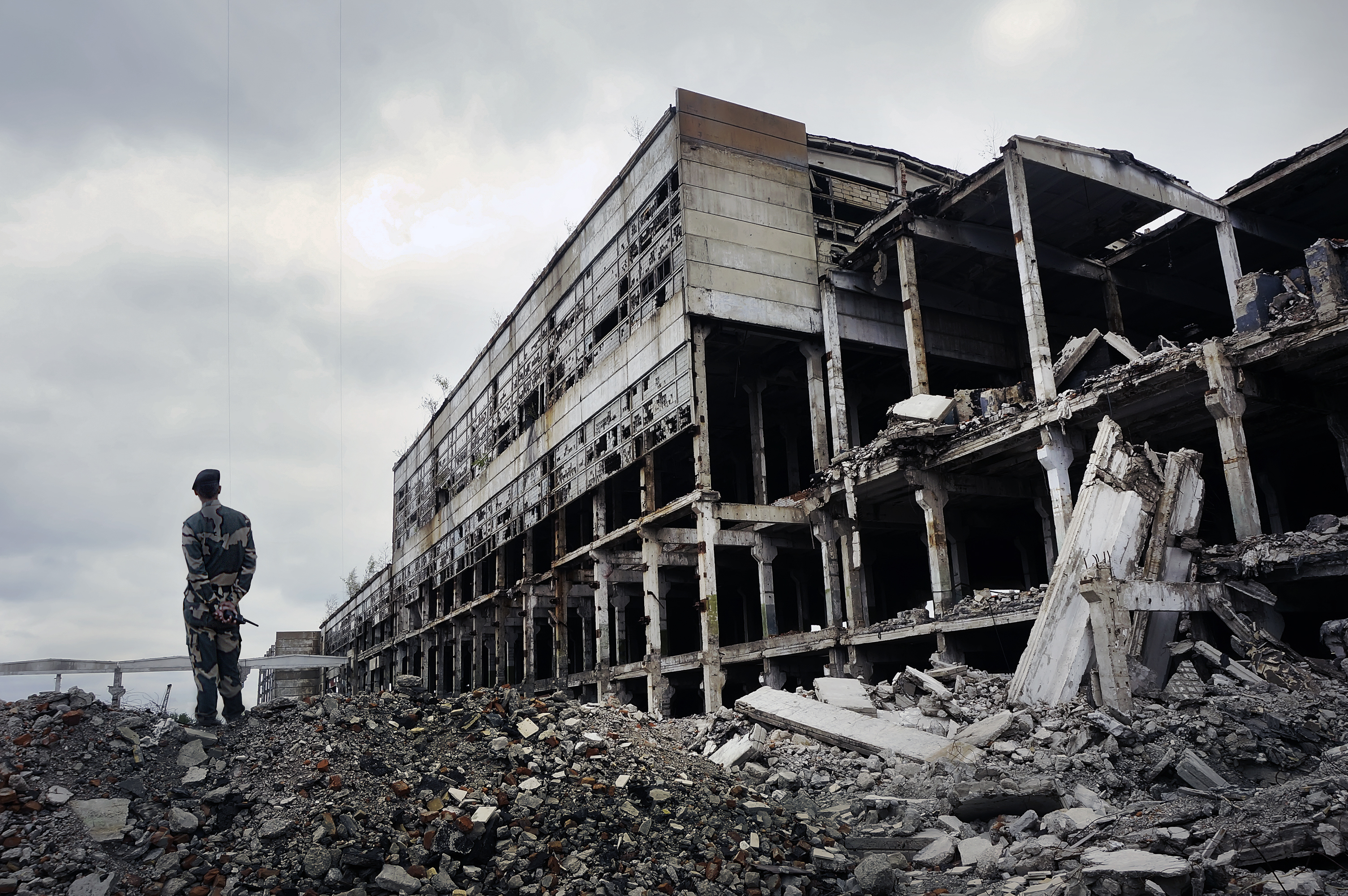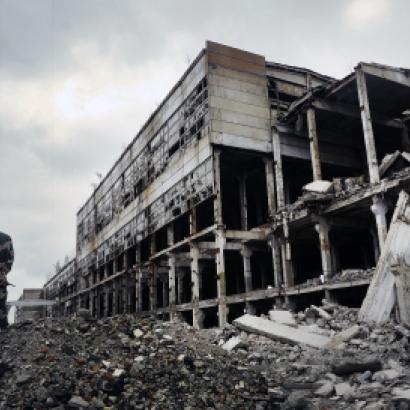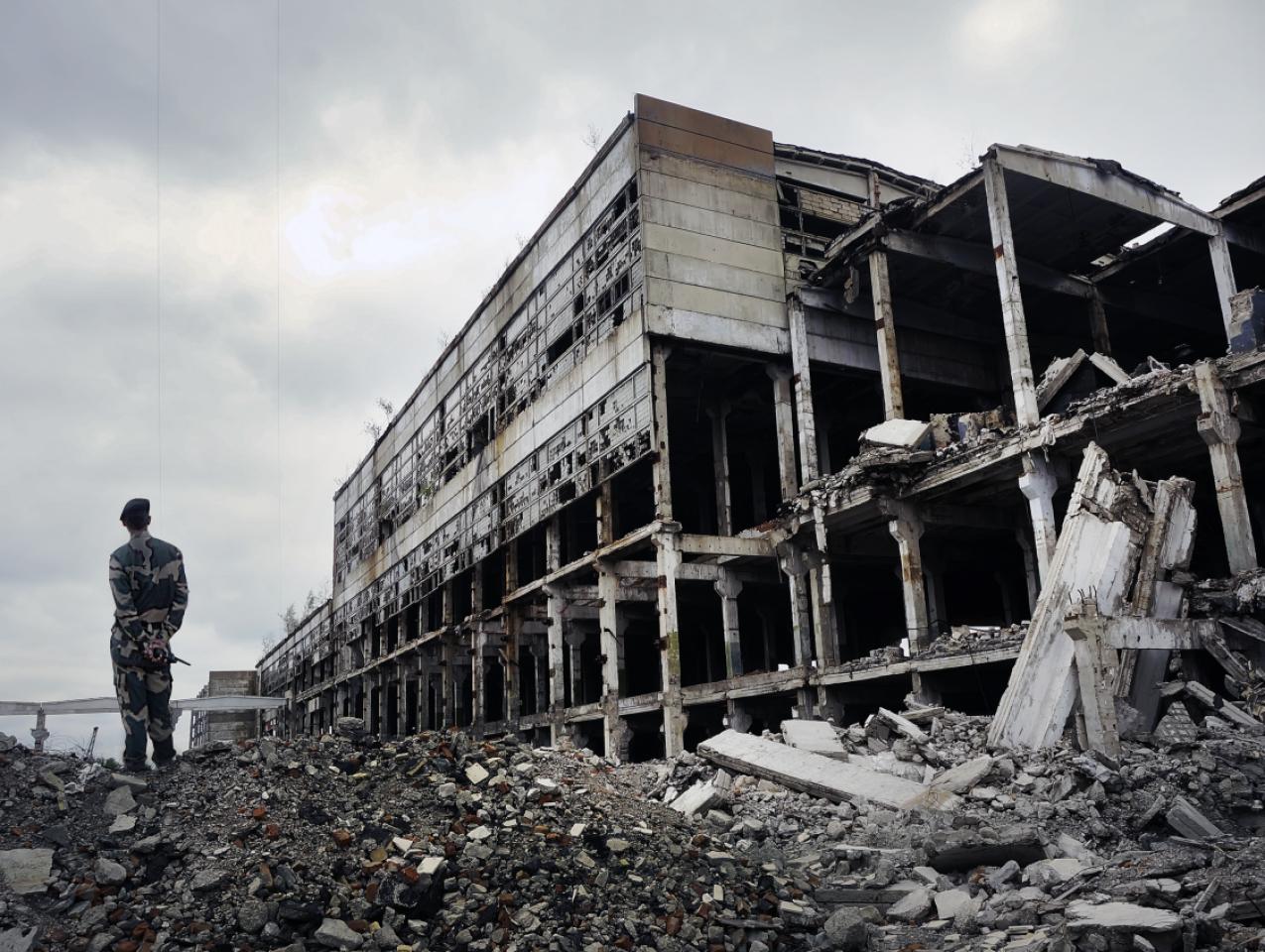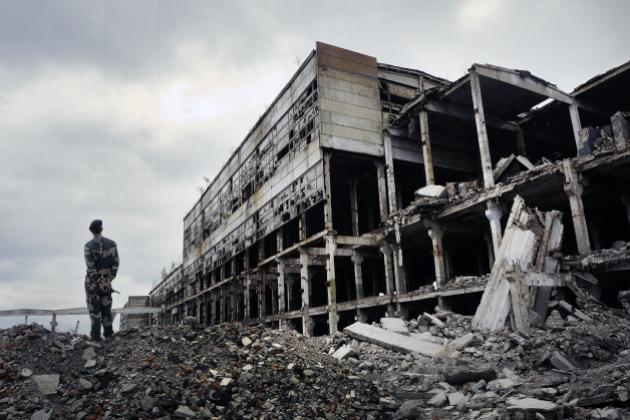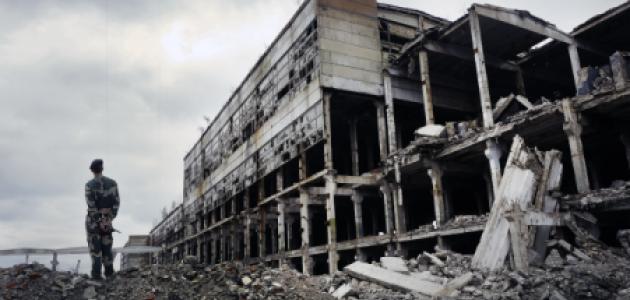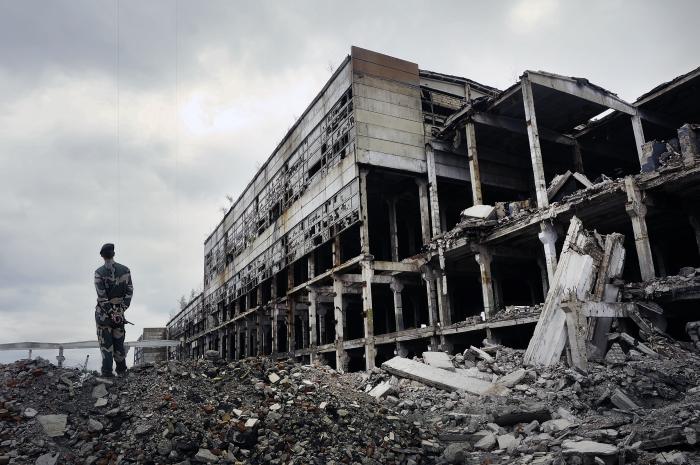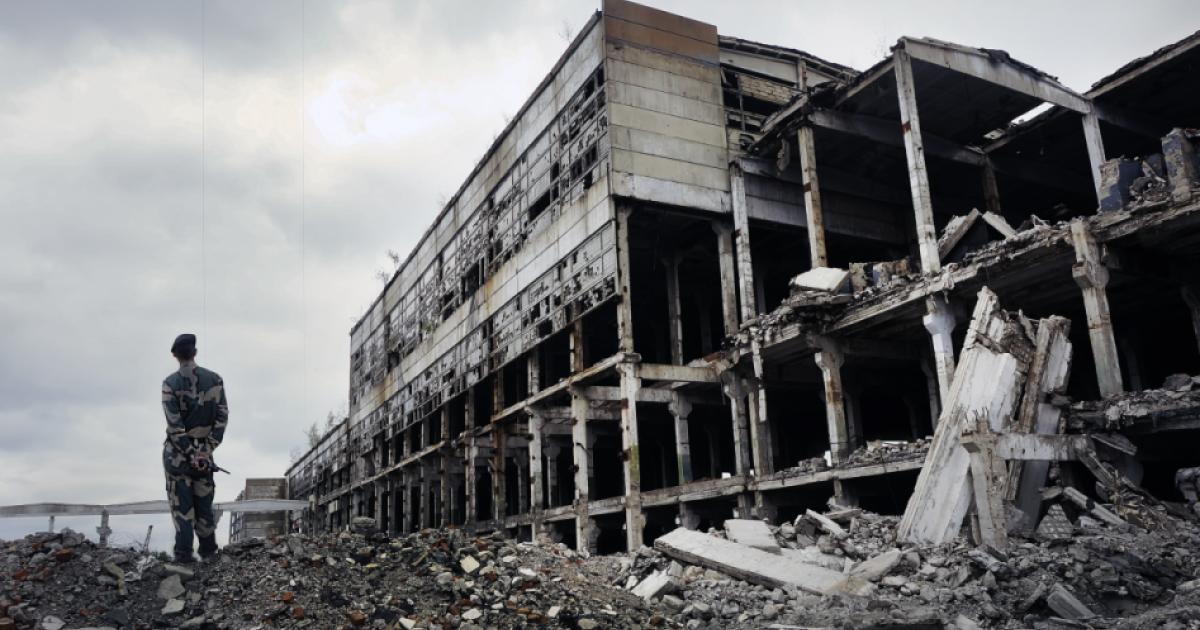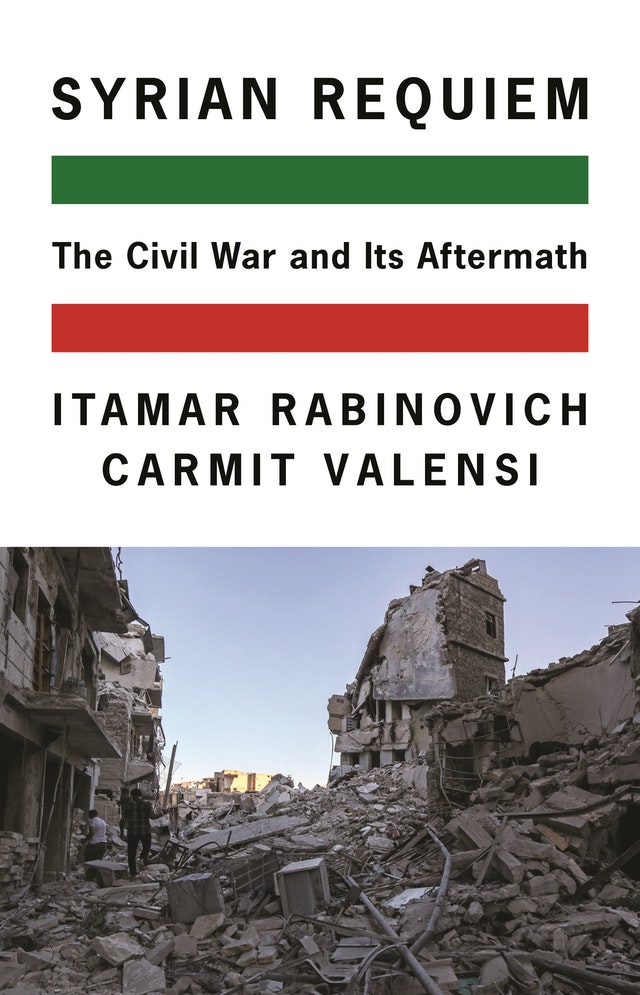By Jonathan Movroydis
Hoover Institution (Stanford University) – The Hoover Institution’s Herbert and Jane Dwight Working Group on the Middle East and the Islamic World acknowledged the tenth anniversary of the Syrian civil war this week with a conversation about the origins of the conflict and the future of what has become a failed state.
Moderated by Senior Fellow Russell Berman, the working group’s cochair, the program featured Itamar Rabinovich, former Israeli ambassador to the United States; Carmit Valensi, director of the Syria research program at Israel’s Institute for National Security Studies; and H. R. McMaster, the Hoover Institution’s Fouad and Michelle Ajami Senior Fellow. Rabinovich and Valensi are coauthors of a recently released book, Syrian Requiem: The Civil War and Its Aftermath.
Rabinovich described the decade-long war as an interplay taking place at three levels: a sectarian conflict between diverse ethnic and religious factions of Syrian society; a regional competition between Turkey, Iran, Israel, and the Arab Gulf states; and an international rivalry between the United States and Russia concerning influence over the future of the Middle East.
The origins of the war date back to the 2011 Arab Spring movement, when in March of that year, antigovernment protests began in the southern city of Daraa, later spreading to Damascus and the northeastern city of Homs. The Syrian Army responded with brutal crackdowns on demonstrators.
That August, opposition militias, including the Free Syrian Army, began to launch attacks on the regime of Bashar al-Assad, a member of the Alawite sect of Shia Islam whose family has ruled the country for five decades. In 2013, Iran-backed Hezbollah joined the fight in support of Assad. The following year, the Islamic State gained control of territory in parts of Syria and neighboring Iraq, and its leaders declared the creation of a new caliphate.
Valensi explained that Assad’s grip on power appeared to be tenuous until two key Obama administration decisions changed the dynamics of the conflict: reversing plans to train and equip the Free Syrian Army in 2012, and failing to enforce a declared “red line” against Assad after he used chemical weapons on his own citizens in 2013.
“That was to be one of the most important turning points of the Syrian crisis, which basically paved the way for Russian military intervention and of course inflicted a deadly blow on the Syrian opposition,” Valensi said.
While Russia’s involvement starting in 2015 secured Assad’s position in the Syria’s southwest and center, the country remains divided, with an al-Qaeda-linked group controlling northwest Idlip province, Turkish-backed rebels dominating parts of Syria’s northern border, and US-supported Kurdish forces commanding the northeast. The conflict has resulted in the deaths of more than half a million people and spurred the emigration of five million refugees to neighboring countries and Europe.
Aside from political divisions, Valensi said, Assad’s biggest problem is that his government doesn’t have the capacity to rebuild the economy or supply its people—90 percent of whom live below the poverty line —with food and other vital resources.
McMaster emphasized that the Biden administration should work to enforce United Nations Security Council Resolution 2254 (2015), which expresses support for a peace process, the drafting of a new constitution, nonsectarian governance, and free and fair elections. He added that in order for the resolution to be credibly administered, the United States needs to remain engaged in the Middle East and not be swayed by growing attitudes of retrenchment at home.
Rabinovich said that he would advise Biden to maintain a troop presence in support of Kurdish forces in control of northeast Syria, where 60 percent of the country’s oil reserves are located.
“If Resolution 2254 is ever going to be implemented into a settlement, you need a place at the table,” Rabinovich told McMaster. “Your presence there and influence through your Kurdish allies, the SDF [Syrian Democratic Forces], who control more than 20 percent of Syria, give you very good cards to play.”
McMaster also warned against what he called a “Potemkin peace plan” advanced by Russian president Vladimir Putin. The former national security advisor postulated that by offering to help reduce Iran’s pervasive influence in Syria, in exchange for allowing Assad to remain in power, the Russians may present the veneer of a just and equitable outcome to the conflict. But in practice, McMaster explained, such a plan would not be in America’s and its allies’ interests, because Assad is widely perceived among Syrians as an illegitimate ruler and is heavily reliant on Iran for support. Foremost, it would erase any leverage Assad’s opponents might have had to secure peace on favorable terms.
Rabinovich echoed McMaster’s sentiments, arguing that Putin would likely try to advance a peace plan that resembled Russia’s dealings with the Chechnyan rebels decades earlier.
“What Putin would actually like to see in Syria is what [the Russians] call a Chechnyan solution. Namely, you crush the opposition brutally and then you impose something that looks like a political settlement,” Rabinovich explained. The former Israeli diplomat also added that Assad is unwilling to make important concessions, including taking back the five million refugees who fled Syria during the course of the war.
“He is quite happy to have a country with a higher percentage of Alawites,” Rabinovich said.
Rabinovich and Valensi held that a lasting peace in Syria will depend on whether American and other world leaders carefully consider the complex dimensions of the country and the interests of regional stakeholders. They maintained that the United States would need to strike a delicate balance between supporting Kurdish partners in Syria’s northeast, while also assuring Ankara, a NATO ally, that such a policy does not threaten Turkey’s territorial integrity.
“It is not a zero-sum game. I think the US can deftly maneuver between these two actors,” Valensi asserted.
Rabinovich and Valensi maintained that Syria’s future needs to be pluralistic and added that while the Alawites may have one of their own in control of Damascus, this minority community needs to be part of Syria’s post-Assad future.
The coauthors suggested that the only solution would be breaking up the country into federations in a manner that ensures acceptable representation and political autonomy for various segments of the country’s diverse population.
“I can see no other formula long term,” Rabinovich concluded.
For more from Hoover Institution’s Herbert and Jane Dwight Working Group on the Middle East and the Islamic World, read essays from latest issue of its quarterly publication, Caravan, on the theme “Human Rights in the Middle East and American Foreign Policy.” Also check out the latest articles and podcasts from the Caravan Notebook blog.







